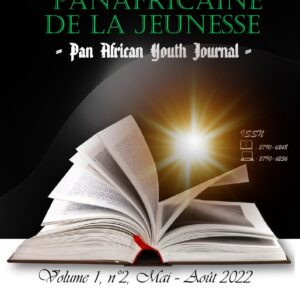Résumé
Les facteurs cognitifs font références aux capacités intellectuelles qui facilitent et influencent
la pensée créative. Ce sont des connaissances de processus de traitement de l’information qui
selon le champ dans lequel se situe une tâche donnée revêt, une importance particulière. Alors,
la créativité est une capacité à produire des réalisations qui sont à la fois nouvelles et adaptées
aux contraintes de la situation dans laquelle elles prennent place. Toutefois certains individus
en particulier ceux présentant les troubles déficitaires de l’attention avec ou sans hyperactivité
(TDA/H) ont une diminution de la pensée créatrice dans les épreuves de résolution de
problème. Ces enfants TDA/H sont inattentifs, moins inventifs ou innovants (dessiner une image
non perçue ou irréelle) et ont des difficultés à exécuter une tâche. Dans ces conditions stimuler
la créativité consisterait à augmenter l’activité des grands réseaux cognitifs des enfants
TDA/H. C’est pourquoi la théorie de l’intelligence émotionnelle qui commence par la
conscience de soi , qualifie l’être humain comme un être émotionnel qui a appris un jour à
penser et à raisonner afin de connaitre ses émotions, à surmonter ses frustrations et à s’auto-
motiver permettra de mieux cerner cette problématique. Partant de ce fait, ce travail abordera
un devis quantitatif de type descriptif comparatif à l’aide de 10 sujets TDA/H, répartis en deux
groupes équivalents obtenus par randomisation. Les résultats obtenus révèlent que
l’intelligence émotionnelle produirait des effets bénéfiques sur des mécanismes cérébraux
associés au processus créatif.
Mots clés : intelligence émotionnelle, conscience en soi, enfants TDA/H, stimulation de
créativité, flexibilité cognitive
Abstract
Cognitive factors refer to intellectual abilities that facilitate and influence creative thinking. It
is knowledge of information processing processes which, depending on the field in which a
given task is located, is of particular importance. So, creativity is an ability to produce
achievements that are both new and adapted to the constraints of the situation in which they
take place. However, some individuals, particularly those with attention deficit disorder with
or without hyperactivity (ADD/H), have a decrease in creative thinking in problem solving
tests. These AD/HD children are inattentive, less inventive or innovative (drawing an
unperceived or unreal image) and have difficulty performing a task. Under these conditions,
stimulating creativity would consist in increasing the activity of the major cognitive networks
of children with ADHD. This is why the theory of emotional intelligence, which begins with
self-awareness, qualifies the human being as an emotional being who has learned one day to
think and reason in order to know his emotions, to overcome his frustrations and to self-
motivation will help to better understand this problem. Based on this fact, this work will address
a quantitative estimate of the comparative descriptive type using 10 ADHD subjects, divided into two equivalent groups obtained by randomization. The results obtained reveal that
emotional intelligence would produce beneficial effects on brain mechanisms associated with
the creative process.
Keywords: emotional intelligence, self-awareness, ADHD children, stimulation of creativity,
cognitive flexibility
RPJ-V2-N°1
NGONO OSSANGO Pangrace
Intelligence émotionnelle : le sens à donner à la créativité chez les enfants TDA/H
$ 5,00
+ Free ShippingEmotional intelligence : the meaning to be given to creativity in adhd/adhd children
NGONO OSSANGO Pangrace
MBOCK Marie Paule
Enseignants-Chercheurs/Cameroun
Email : ngonopan@gmail.com ; mbockm316@yahoo.com




Reviews
There are no reviews yet.